Original title: The Agenda Economy: Web2 and Web3 AI Agent Trends
Original author: Defi0xJeff, head of steak studio
Compiled by: Ashley, BlockBeats
The following is the original content (the original content has been compiled for ease of reading and understanding):
Web2 & Web3 AI Agent Trends
Y Combinator recently released its “Request for Startups” spring 2025, listing the entrepreneurial directions they hope more founders explore. Among them, many directions reveal emerging trends in AI Agents in the Web2 field and solve a series of practical pain points:
· AI App Store
·Data center
·Compliance and audit
· DocuSign 2.0
·Browser and computer automation
·Personal AI assistant
· AI Agent development tools
·The future of software engineering (Engineering Agent)
· AI commercial open source software
·Hardware optimization code Agent
· Business-to-Agent(B2A)
·Vertical AI agent
·Reasoning AI infrastructure
For readers who want to understand more, I strongly recommend checking the original post posted by @ycombinator:
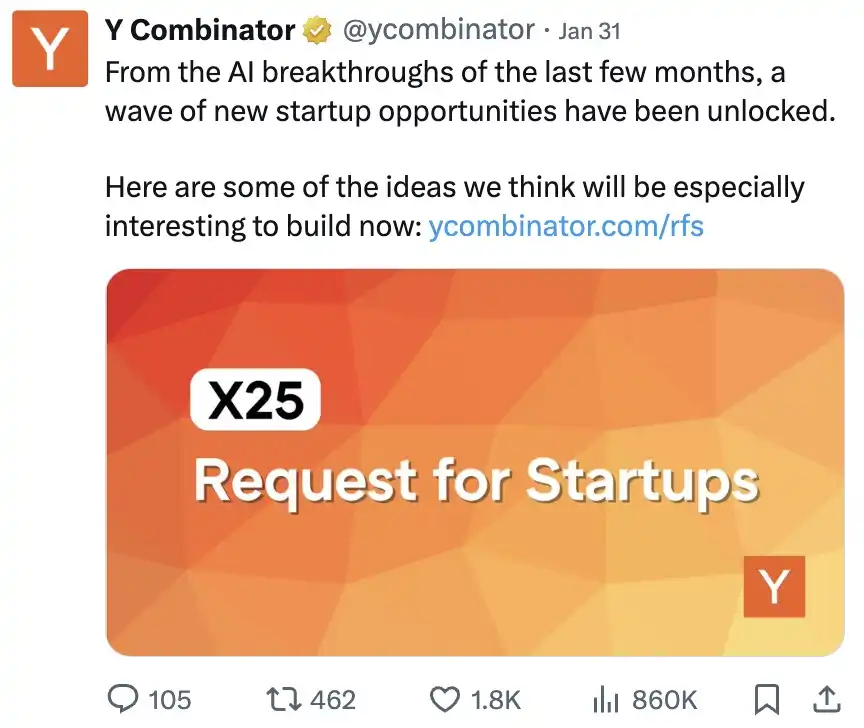
There’s a lot of information here, but if you’re already deep in this area, you’ve probably seen many Web3 Agent teams deploying on these tracks. In my opinion, the following tracks will dominate the trend of Web3 AI Agents (in no particular order):
· AI commercial open source software
· AI Agent development tools
·Vertical AI Agent
·Personal AI assistant
· AI App Store
· B2A(Business-to-Agent)
AI Commercial Open Source Software
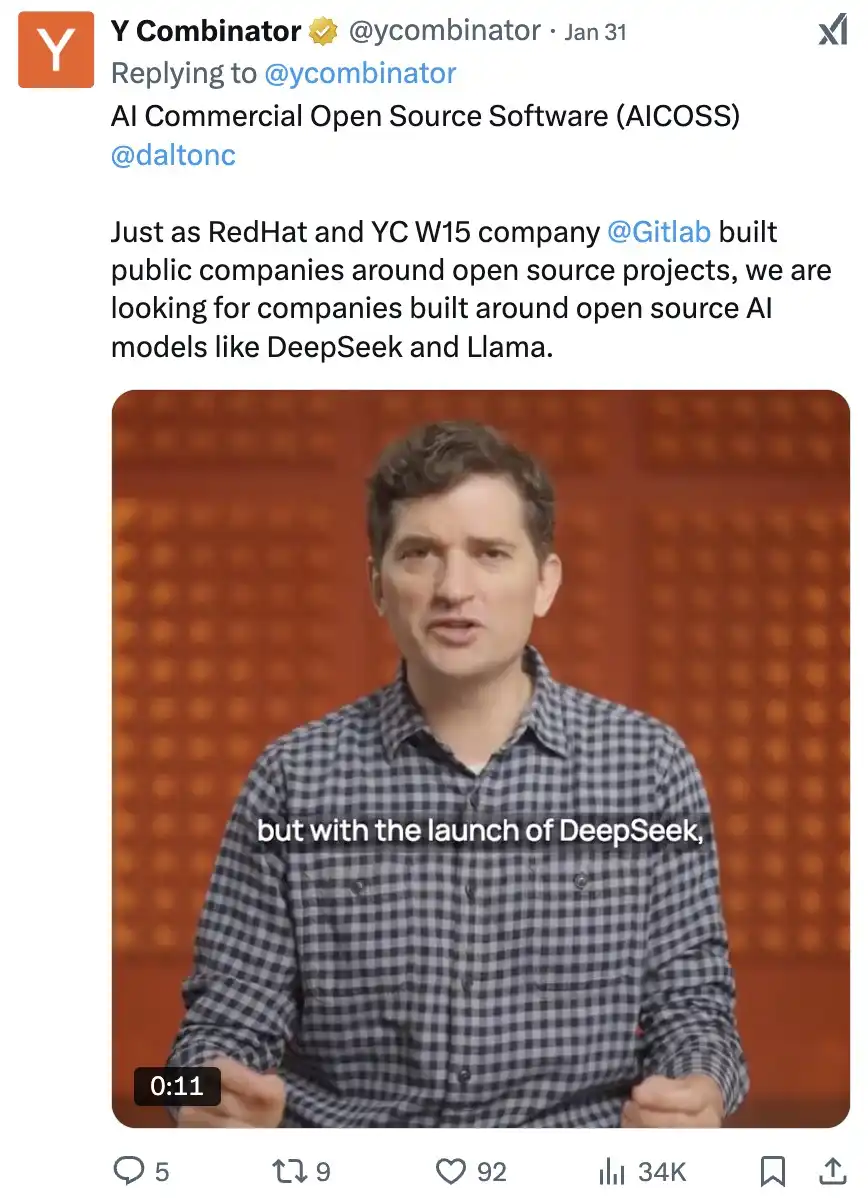
Web3 AI is deeply bound to open source AI, making it naturally suitable for this track.@ ai16zdao took the lead in promoting one of the largest open source AI movements-the ElizaOS framework. Currently, there are 14k stars and 4,227 Forks on GitHub. Despite market volatility, adoption rates continue to rise.
This trend inspires Web3 developers to open source their technology, making AI Agent technology and frameworks more open, and promoting developers to collaborate more efficiently. For example, in addition to ElizaOS, we have also witnessed the rise of frameworks such as @arcdotfun,@GAME_Virtuals,@sendaifun,@pippinlovesyou, and @freysa_ai.
With the evolution of AI Agent technology-the release of o3 launched by OpenAI, the release of the new DeepSeek model, and the accelerated implementation of AI Agents by technology giants, the demand for open source AI and Web3 AI is accelerating. AI x Crypto may eventually occupy a significant share of the AI market.
AI Agent Development Tools
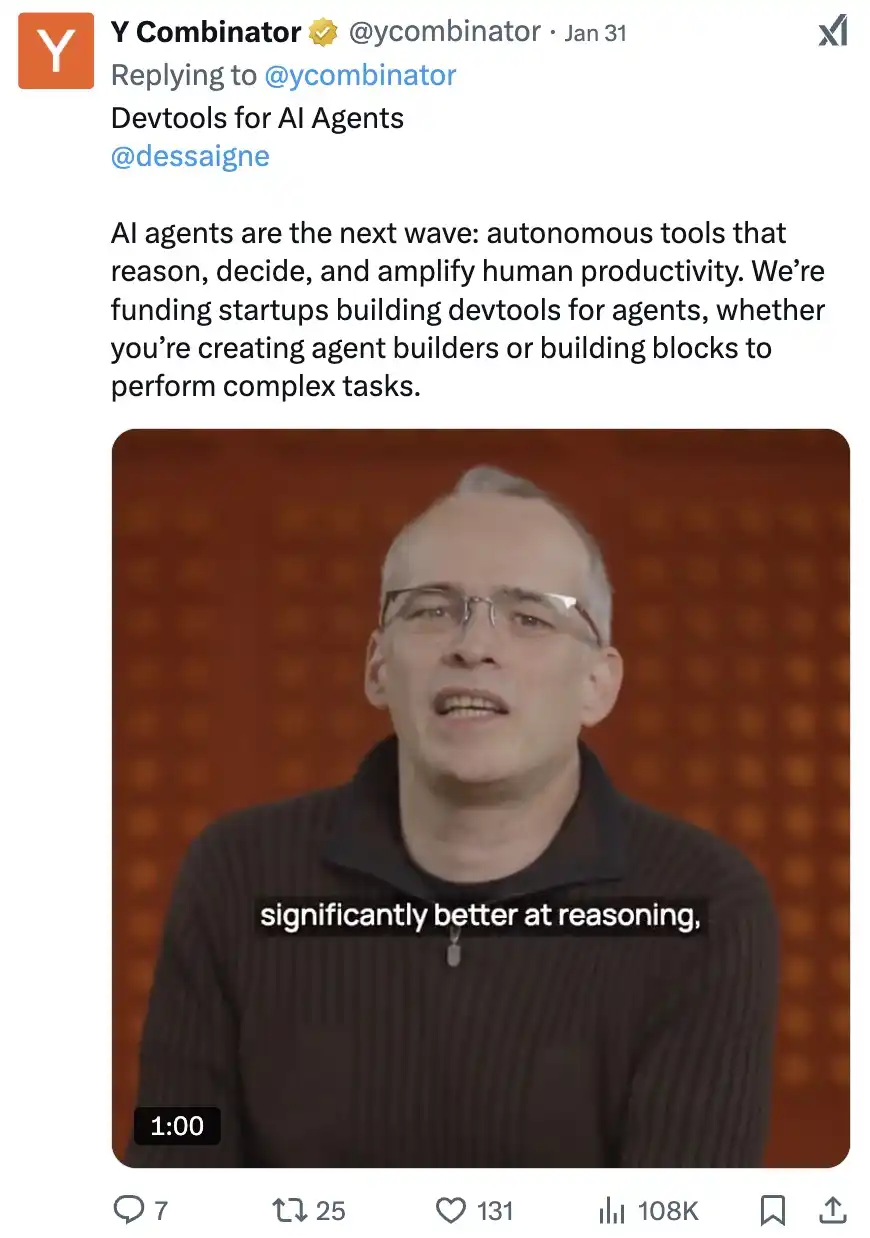
Building AI Agents is not just about creating intelligent models, but more importantly, providing developers with appropriate tools and infrastructure to build, deploy and manage AI Agents more efficiently. As AI agents become increasingly complex, demand for developer-friendly tools, frameworks and platforms is surging.
Web2 has emerged with a large number of AI development tools, while Web3 has taken this trend to a new level-integrating decentralization, trustlessness and open source collaboration to get rid of the closed ecosystem controlled by traditional big technology companies.
This trend has given rise to AI developer platforms, Agent ecosystems, and no-code/low-code building tools, lowering entry barriers for AI Agent development.
In Web3, we are seeing more and more AI Agent development tools emerging, such as:
@ai16zdao: ElizaOS, with the most plug-ins and integrations
@sendaifun (Solana Agent Kit)& @CoinbaseDev (CDP Agent Kit): Provide core development tools for on-chain AI agents
@autonolas ‘Pearl: AI Agent app store focused on forecasting markets, DeFi automation and autonomous execution of agents
@AlloraNetwork: Provides machine learning infrastructure for AI agents to improve real-time prediction capabilities
@cookiedotfun: An AI Agent-driven data analysis platform that helps Agents extract social emotional insights from on-chain and off-chain data
@getmasafi: Real-time data streaming solution that provides AI Agents with the latest intelligence
Some code-less AI platforms focused on Web3 include:
@virtuals_io: The leading uncode/low-code AI Agent builder that helps developers quickly implement AI Agent products
@ HolowworldAI: A code-less construction tool for 3D audio-visual AI Agents
@Cod3xOrg: A code-less platform specifically designed for automated trading AI Agents
@Almanak__: A platform focusing on institutional-level quantitative Agent construction
@EliteAgents_AI: Plug-in enhanced AI Agent that integrates ElizaOS, G.A.M. E and other AI ecosystems
The ecosystem of Web3 AI Agent development tools is still in its early stages, but the infrastructure is rapidly improving. In the next few years, we can expect a fully decentralized AI development ecosystem where AI Agents will not only be easy to build, but will also be fully autonomous, scalable, and profitable.
Vertical AI Agent
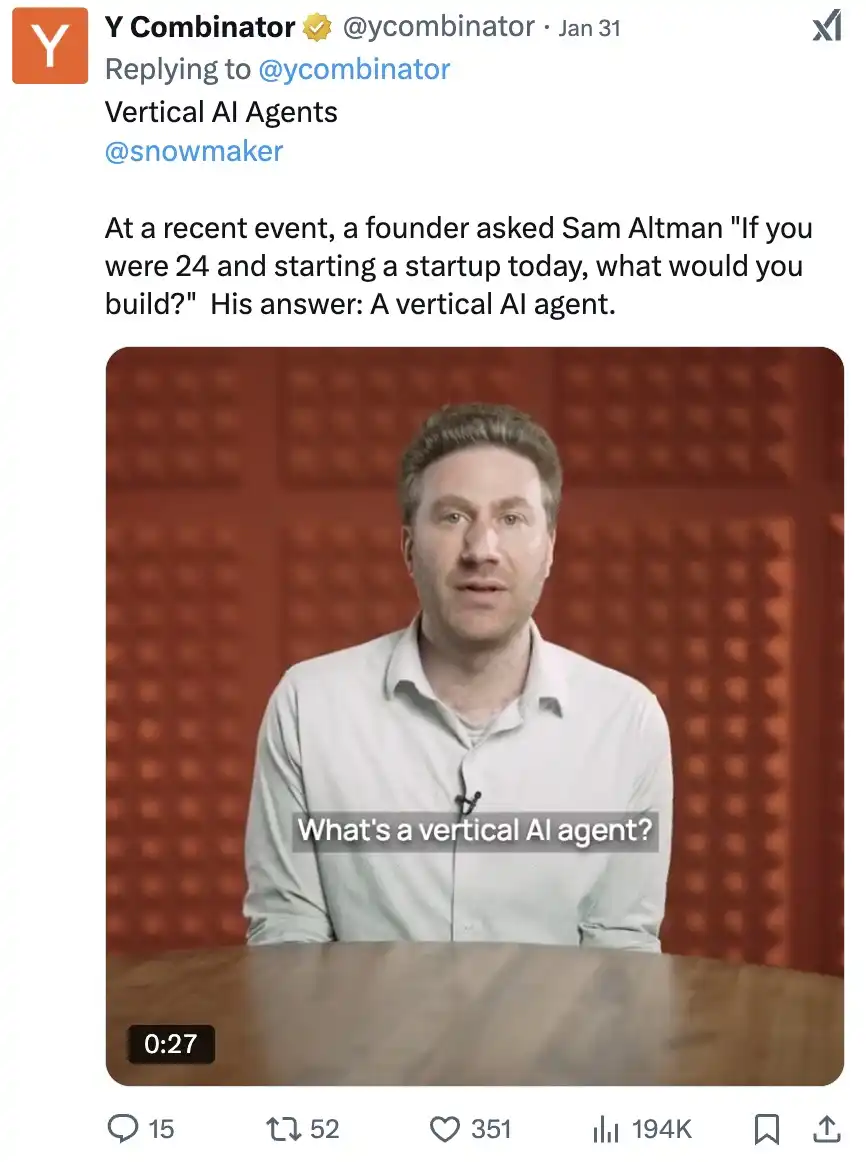
AI Agents are no longer general purpose tools, but have gradually evolved into highly specialized vertical domain agents that can handle complex tasks and even make decisions and execution.
We have seen the rise of AI Agents in fields such as finance, law, and research, providing stronger analysis, recommendation and execution capabilities, such as:
Tax Agent: Calculate, optimize and implement tax-saving strategies
Legal Agent: Review contracts, identify unfavorable clauses and provide alternative recommendations
·Financial Agent: Analyze financial statements, interpret macroeconomic trends, and generate investment insights
Unlike Web2, Web3 ‘s vertical AI Agents pay more attention to autonomy, decentralization and on-chain integration, avoiding the problem of centralized data silos and enhancing transparency and trust.
In the Crypto field, community interaction and personalization are extremely important, and Web3 AI Agents are developing in a more personalized and interactive direction. For example:
· AI influencers: @aixbt_Agent, sharing market insights and Alpha opportunities on Crypto Twitter
·Token Analysis Agents: @unit00x0,@kwantxbt,@tri_sigma_,@mobyAgent,@_AgentScarlett
·Research Agents: @DV_Memetics,@S4mmyEth, providing on-chain intelligence analysis
· DeFAI Agents: @Cod3xOrg,@gizatechxyz,@autonolas, manage LP, revenue farming and automated trading strategies
Web3 native AI Agents are accelerating their evolution. In the future, DeFAI Agents are expected to simplify the complexity of DeFi and attract the next billion users to enter the AI ecosystem.
Personal AI Assistant
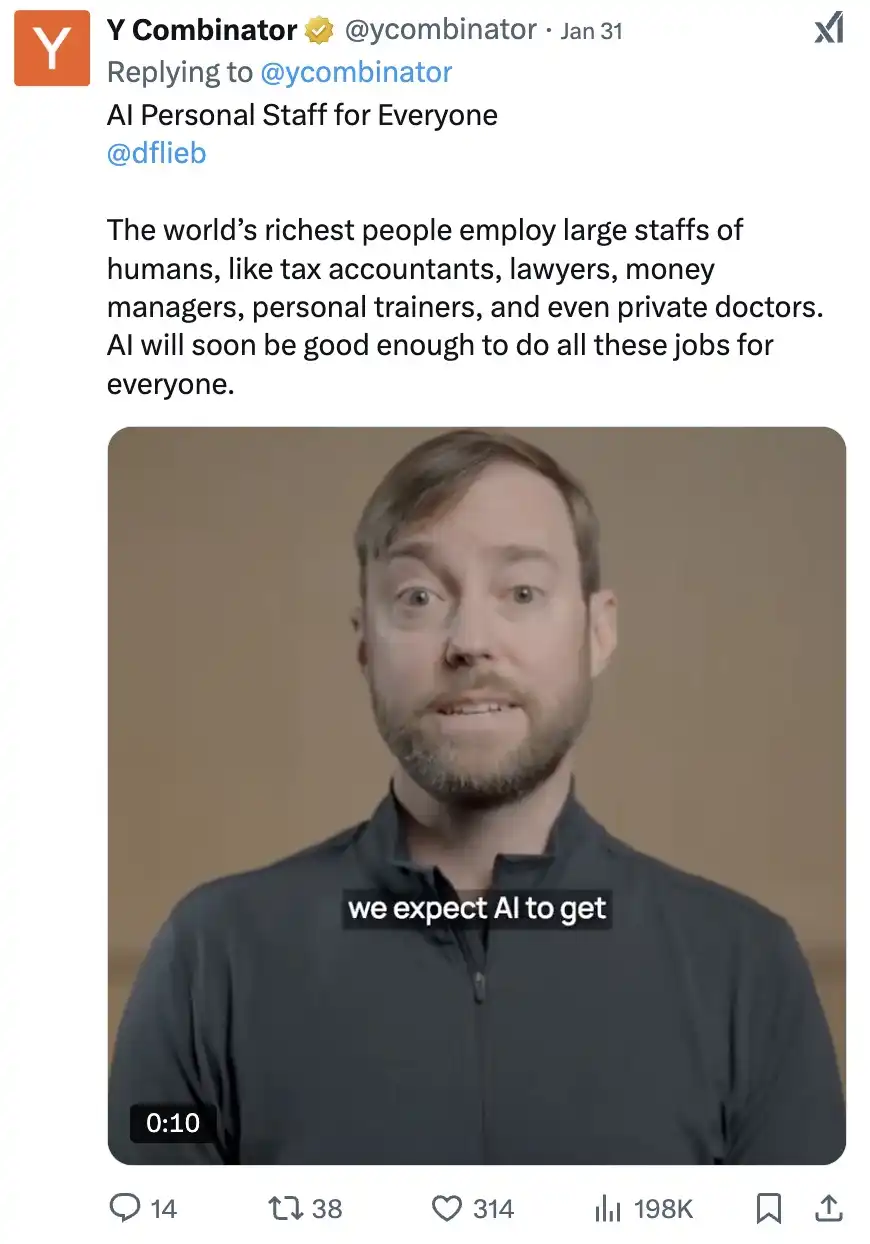
AI personal assistants are revolutionizing the way we handle daily affairs, and previously unimaginable convenience and automation capabilities are now becoming a reality. These AI assistants will not only be simple reminder tools or schedule management assistants, but also intelligent Agents that can proactively make decisions for users and optimize time and resources.
Imagine an AI that not only helps you book travel, but also selects the best restaurant based on your tastes, monitors traffic conditions in real time, and automatically adjusts meeting schedules when you are late. AI can also summarize all meeting content, provide follow-up suggestions, and even automatically book transportation. In addition, it can organize your photos, classify them by location and event, and create selected photo albums for easy viewing at any time.
In the Web3 space, this concept has been further expanded, for example:
·Airdrop Agent: Scan all your wallets to determine if you are eligible for airdrop for @berachain,@monad_xyz,@StoryProtocol and other projects (if anyone is doing this, please contact me lol).
·Income Farming & LP Management Agent: Track and rebalance DeFi positions, automatically collect rewards, and compound interest with the best strategy.
·AI-driven GitHub codebase analysis: For example,@soleng_Agent can evaluate whether a project has a strong development team or whether it may be a scam.
·Automated trading Agents: such as@Cod3xOrg and @Almanak__, can execute preset trading strategies, accurately grasp market entry and exit opportunities, and optimize profits.
The next stage of the development of AI personal assistants will be to evolve from a “passive response” to a truly autonomous AI co-pilot. They are not just tools, but intelligent Agents with autonomy and decision-making capabilities that can proactively predict user needs and complete complex multi-step tasks with minimal input.
In this transformation, the role of Web3 is crucial: Decentralized AI Agents will be untrustworthy, transparent and censory-resistant, ensuring that users have full control of their AI-driven workflows. In the future, users will not only be able to delegate simple tasks to AI, but even hand over financial and operational decisions to AI Agents, which will undoubtedly completely change the rules of the game.
AI App Store
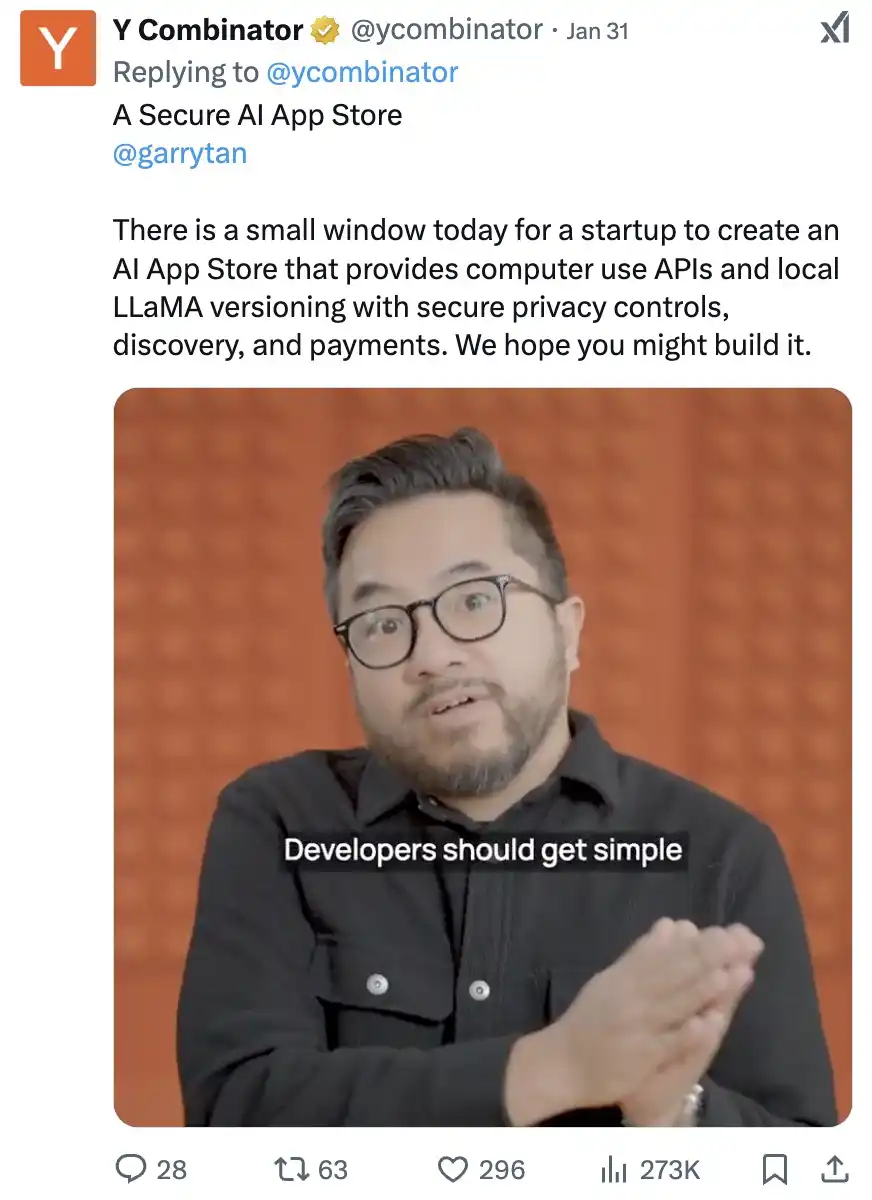
AI app stores are one of the most exciting and inevitable developments in artificial intelligence. Just as mobile apps have their own app store, AI Agents also need a dedicated marketplace where users can easily discover, purchase, and integrate AI-driven apps.
In the Web3 space, this concept is evolving into a combination of the Multi-Agent Orchestration Network (MAO) and the Agent Distribution Network:
The Agent Distribution Network is responsible for attracting builders, investors and users into the AI Agent ecosystem. The most representative case is @virtuals_io, which is building an Agent Society where different AI Agents collaborate and interact.
The MAO Network ensures that AI applications can accurately match user needs and intelligently orchestrate agents to maximize their value. In the future, users will not need to manually search for AI applications, but will only need to express their needs, and the system will automatically recommend appropriate AI Agents, and even dynamically combine multiple Agents to provide a complete solution.
This means that the Web3 AI application store is not just an application market, it must also have key functions such as content filtering, privacy protection, and decentralized Agent interaction to ensure seamless collaboration between AI agents.
Core players driving the development of the Web3 AI app store:
@virtuals_io: Expand its vision of the Agent Society, introduce high-quality AI Agent teams, and promote the development of inter-agent communication protocols.
@santavirtuals and @questflow: Optimize coordination between Virtuals Agents and improve resource allocation efficiency.
Abstract Layers:
@orbitcryptoai and @HeyAnonai: By integrating abstraction layers, AI Agents and DeFi are made easier to access and interact with.
The orchestration of AI Agents is still in its early stages, but what is certain is that the ability to seamlessly run and monetize AI Agents will become a huge market, and Web3 is actively deploying to seize a significant share of this emerging market.
B2A(Business-to-Agent)
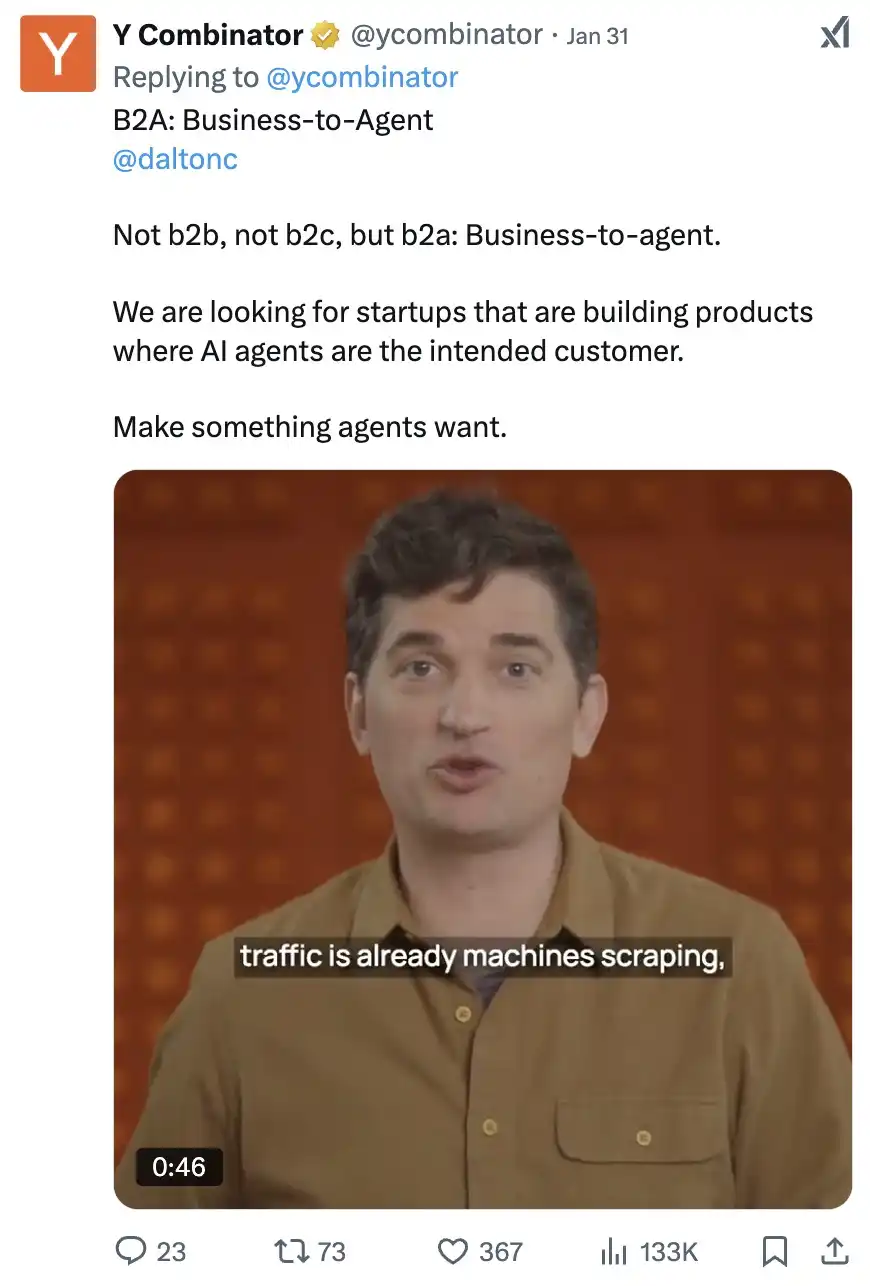
AI agents are more than just tools-they are becoming active participants in the digital economy, able to trade independently, manage resources, and even collaborate with other AI agents. This shift requires a completely new infrastructure that not only serves human users, but also treats AI agents as customers. This is the core of the B2A (Business-to-Agent) model.
Just as SaaS (Software-as-a-Service) has changed the way businesses operate, B2A will define how AI Agents interact, transact, and operate in the digital economy. In the future, AI Agents will need their own payment solutions, data access, computing resources, and even privacy protection frameworks. Currently, multiple Web3 projects are building a B2A ecosystem:
· AI commercial payments: @Nevermined_io is developing an AI Agent native payment solution, aiming to become the “PayPal of AI Agents.”
·Computing power management: @hyperbolic_labs is working on self-sustaining AI agents that will enable them to manage computing resources autonomously.
·Privacy and security infrastructure: @PhalaNetwork,@OraProtocol and @brevis_zk are building a privacy-protected computing layer dedicated to AI Agents to ensure secure, verifiable interactions.
·High-quality data access: @getgrass_io,@vana,@getmasafi and @cookiedotfun provide structured, high-quality data sources to help AI Agents train, learn and operate efficiently.
·Inter-agent communication: @virtuals_io is developing an inter-agent communication protocol to enable AI agents to collaborate with each other.
· AI intellectual property management: @StoryProtocol is building an AI-generated content management framework similar to TCP/IP, allowing AI Agents to independently manage and authorize the content they create.
B2A is not just a theoretical concept, it is being actively constructed. As the capabilities of AI agents continue to increase, they will require specialized economic infrastructure to enable them to operate independently in the digital ecosystem. If you haven’t thought about how to serve AI Agents in this market, you may be lagging behind.
conclusion
AI Agents are reshaping the way we interact, build, and automate in the Web2 and Web3 worlds. With the rise of the Web3 native AI ecosystem, we are entering a new era driven by decentralized AI agents, bringing new paradigms such as open source collaboration, Agent economy, and decentralized automation.
The integration of AI and Crypto is still in its early stages, but its growth momentum is undeniable. Web3 gives AI Agents some capabilities that Web 2 cannot provide: autonomous ownership, permissionless innovation, and a fully composable ecosystem. The question is no longer whether AI Agents will reshape Web3, but how quickly this change will happen and which tracks will define the future.
As the AI Agent economy expands, one thing is beyond doubt: Whether you are a developer, an investor, or just a curious bystander, now is the best time to pay attention to this trend.
Infrastructure is being built, industry players are emerging, and market opportunities are huge.
The only question is: Are you ready to join?
“Original link”



